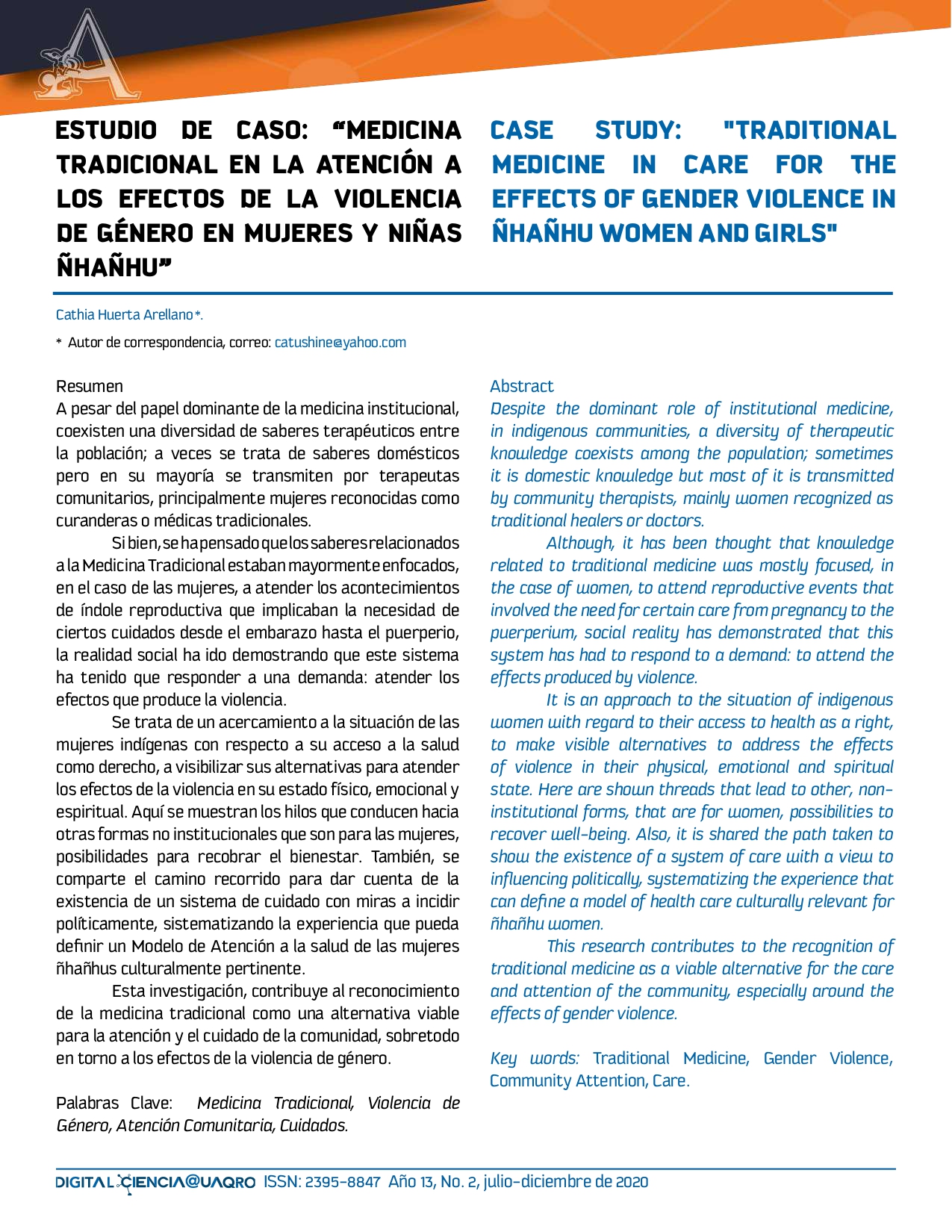Resumen
A pesar del papel dominante de la medicina institucional, coexisten una diversidad de saberes terapéuticos entre la población; a veces se trata de saberes domésticos pero en su mayoría se transmiten por terapeutas comunitarios, principalmente mujeres reconocidas como curanderas o médicas tradicionales. Si bien, se ha pensado que los saberes relacionados a la Medicina Tradicional estaban mayormente enfocados, en el caso de las mujeres, a atender los acontecimientos de índole reproductiva que implicaban la necesidad de ciertos cuidados desde el embarazo hasta el puerperio, la realidad social ha ido demostrando que este sistema ha tenido que responder a una demanda: atender los efectos que produce la violencia. Se trata de un acercamiento a la situación de las mujeres indígenas con respecto a su acceso a la salud como derecho, a visibilizar sus alternativas para atender los efectos de la violencia en su estado físico, emocional y espiritual. Aquí se muestran los hilos que conducen hacia otras formas no institucionales que son para las mujeres, posibilidades para recobrar el bienestar. También, se comparte el camino recorrido para dar cuenta de la existencia de un sistema de cuidado con miras a incidir políticamente, sistematizando la experiencia que pueda definir un Modelo de Atención a la salud de las mujeres ñhañhus culturalmente pertinente. Esta investigación, contribuye al reconocimiento de la medicina tradicional como una alternativa viable para la atención y el cuidado de la comunidad, sobretodo en torno a los efectos de la violencia de género.

Esta obra está bajo una licencia internacional Creative Commons Atribución-NoComercial 4.0.

